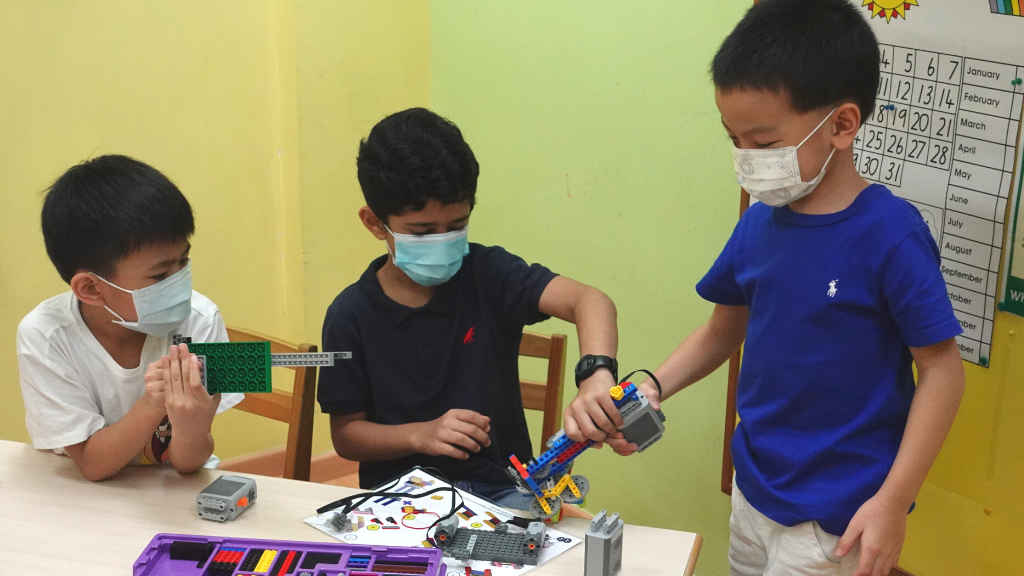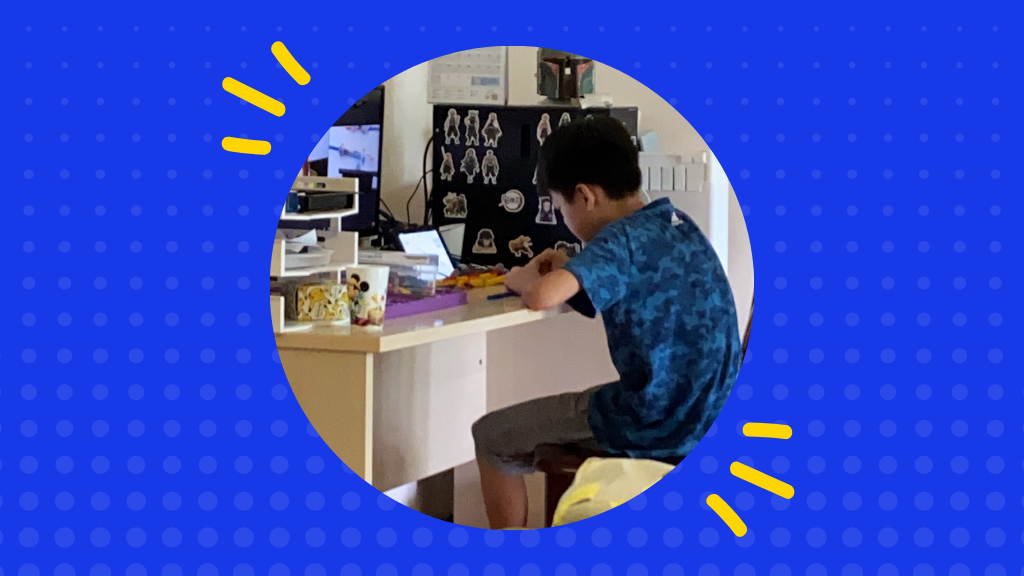The pandemic has caused a significant increase in screen times among children. This is mainly because, throughout the pandemic, classes were held online, games were played online, and if their time is not spent attending classes or playing online games, these children most likely spend their free time watching the television.
It was reported by the National Institute of Education (NIE) that preschool children are getting less physical activity and sleep, and more time spent on screens, with a 23% increase from 1.75 hours to 2.15 hours per day during the pandemic.
How much screen time is safe for children?
According to the World Health Organisation (WHO), on a daily basis, children under the age of five should only spend an hour or less on digital devices while those under the age of one should have no screen time at all. Here is WHO’s recommendation screen time for children on a daily basis:
Infant < 1-year-old – No screen time is recommended.
1-2 years old – No screen time is recommended for a one-year-old. However, for two-year-olds, the preferred screen time is no more than an hour.
3-4 years old – No more than an hour.
5 years old – No more than an hour.
According to the American Academy of Pediatrics, all screen time for children under the age of five and below should be accompanied by adult supervision. For children aged five to 18 years old, screen time should be filtered and tailored to each child. Parents should ensure that their children are getting enough rest and sleep. The suggested time is an hour of physical activity and about 12 hours of sleep for teenagers.
What could excessive screen time do to children?
1) Learning abilities
Data collected by a landmark National Institutes of Health (NIH) study has shown that children who spent more than two hours a day looking at screens scored lower on language and thinking tests.
It was also found that children who spent more than seven hours of screen time experienced thinning of the brain’s cortex, an area related to critical thinking and reasoning. These findings had concluded that when children spend most of their time online, they spend less time engaging in physical activities that greatly help to foster imagination, creativity, and social skills.
2) Early childhood development
At age three, a child’s development is happening rapidly. This is the best time for them to explore the world around them and observe how adults live their lives and mimic them. When children aged three and below spend most of their time online, it may just inhibit a child’s ability to observe and experience the typical activities. And this can be detrimental to their early childhood development.
3) Language and communication
Parents need to have a reciprocal dialogue with children as it helps develop children’s social interaction skills. Language development expands rapidly when children reach the age of one and a half until three years of age. This is the best age for parents to interact with their children and play with them. And a physical or one-on-one conversation is far more effective to hone a child’s language and communication skills compared to passive or one-way interaction with a screen.
4) Sleep-deprivation
Excessive screen time can affect children’s sleep because the blue light from screens inhibits melatonin. Not to mention playing games online or watching the television makes their bodies more alert and activated, which further strays them away from a good sleep.
It was also found that poor sleeping habits caused by excessive screen time can also lead to behavioural problems. Over-stimulation can cause children to deplete their mental energy, which often leads to poor focus and explosive behaviours in school. Examples of explosive behaviours are anger, aggression, frustration, and depression.
5) Health problems
Excessive screen time has also been linked to the risk of childhood obesity. Supposedly, early childhood is the best time for children to adopt a healthy lifestyle and boost health gains as that is a period of rapid development. Meaning to say, children should improve their physical activities, reduce their sedentary behaviour, and have enough quality sleep. Health problems in children must be taken seriously because obesity in children can lead to social isolation and poor self-esteem.
What can you do to limit screen time?
Now that you have understood the dangers of excessive screen time towards children, you must understand your part in tackling this problem. Here are some of the things parents can do to limit screen time when at home:
- Co-watch with your children to help them understand the subject better. By shifting the focus towards the content rather than the duration, you can limit your children’s screen time.
- Schedule a dedicated playtime for them to engage in physical activities.
- Ensure that your children are not looking at screens before bed and during mealtime.
- Encourage them to pursue physical or offline hobbies to keep them active and have them socialise with other people outside of the screen.
- Limit your own screen time because children learn a great deal from observing others.
While it is important to familiarise our children with the digital world, as parents, we should also understand that excessive screen time can affect early childhood development. Here at Young Engineers Singapore, we have perfected our classes to ensure that young children have enough time and activities to engage with the real and digital world. For more information about our enrichment programmes, get in touch with us now or email us at admin@youngengineers.sg.

